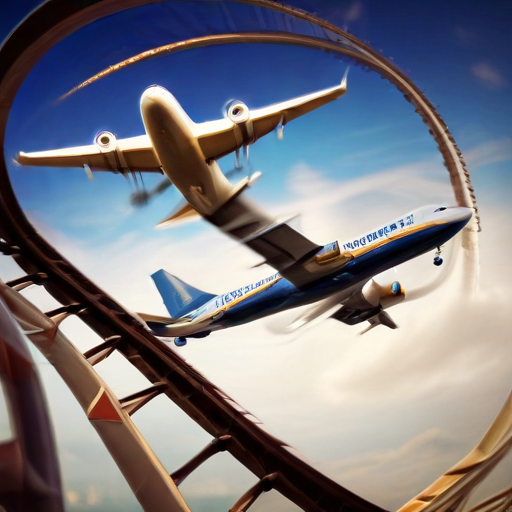Ryanair has expressed disappointment with its recent business performance, a sentiment echoed by investors who have seen the airline’s stock decline by 17%. In its latest quarterly earnings report, the Irish budget carrier revealed a revenue of €3.6 billion ($4 billion), which remains on par with the previous year. However, profits plummeted to €336 million, nearly halving compared to last year. CEO Michael O’Leary attributed some of these challenges to the necessity of working harder to maintain passenger numbers, despite a notable increase in traffic.
The airline reported a 10% increase in passenger traffic, totaling 55 million, but O’Leary pointed out that this growth comes at a cost. He emphasized that fares and bookings have had to be significantly stimulated, with recent performance and close-in bookings falling short of expectations as the company approaches the busy summer months.
In addition to weaker demand, Ryanair is grappling with rising labor costs and delivery delays from Boeing, which O’Leary has long criticized. Although he has defended the airline following a mid-flight malfunction of a 737 Max 9 earlier this year, he has consistently urged Boeing to improve its operations.
O’Leary noted that passengers in the European Union appear to be feeling the effects of persistent inflation and slowing economic growth more acutely than they had earlier in the recovery from the COVID-19 pandemic. Interestingly, he suggested that a reduction in capacity for summer 2025, due to stalled aircraft deliveries, might ultimately benefit the airline if consumer spending continues to be under pressure.
Looking ahead, Ryanair anticipates operating fewer aircraft than originally planned, with no expected capacity growth for the next two years. This adjustment, O’Leary argues, could position the company well in the face of evolving consumer behavior.
This scenario underscores the challenges facing budget airlines amid fluctuating economic conditions but also highlights an opportunity for Ryanair to adapt its strategy in response to market demand, potentially leading to a more sustainable business model moving forward.
Overall, while Ryanair faces hurdles, there is a sense of optimism in adjusting operations, which could ultimately strengthen its market position in the long-term.
